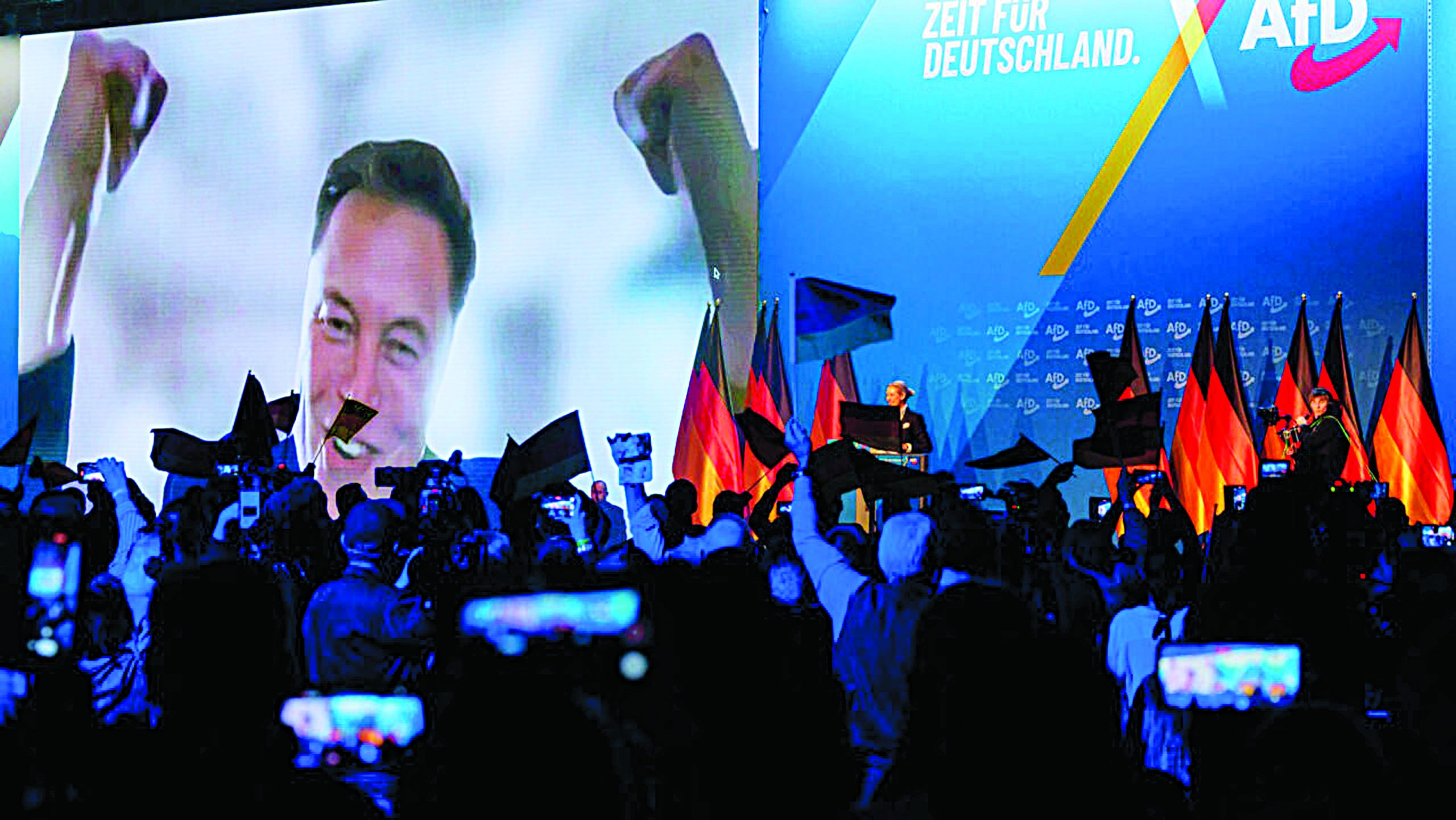German elections. From the influence of Musk to the demography and the sociology of vote

American multimillionaire Elon Musk, now Donald Trump's right -hand man, was one of the most spoken figures in the German campaign. Merz promises consequences for what he considered electoral interference. Demography and sociology of vote show the division that still persists in Germany.
One of the main engines of the European Union, Germany, went to the polls in advance at a complex moment. The economy is in recession for the third consecutive year and social tensions increase following occurrences associated with uncontrolled immigration. Also the line of action adopted by the European Union in the last decade has generated discontent everywhere, with the parties of the Center to cross periods of difficulty given the inability to generate strong resolutions to the problems of their populations. Therefore, we have seen a substantial growth in alternative parties, especially on the right, and we are facing winds for moving – especially after Donald Trump's election to the White House in the past 5 November.
Thus, AFD confirmed the trend after being the second most voted force in the latest European elections and managed to overcome the 20% mark of the votes in Sunday's legislatures (pp 14-15). A new chapter in German politics is certainly opened at a time when Europe, in general, and Germany, in particular, yearn for a change of course.
The influence of Musk
The influence of the multimillionaire – and now a member of the intimate circle of the US President – Elon Musk has been considered one of the causes for the result of AFD. Also the newly elected Chancellor, Friedrich Merz, threatened, even before the electoral act, with future consequences. « What happened in this election campaign cannot go blank, » Merz told Wall Street Journal, pointing to future reprisals that can take over various forms. «It can be a political response. It may be a legal response. I want to analyze this calmly after this election campaign », not excluding the possibility of investigations for illegal donations. The next German executive leader even compared the interference of Musk and Washington with that of Kremlin: « It was no less radical and scandalous, » he said.
The accusations of electoral interference are several, but was Musk really influential, or is the growth of AFD just a reflection of the electoral situation in the other European countries?
Last January 9, Musk carried out an interview live with the party leader, Alice Weidel, at X, a social network of which he owns. The conversation of more than an hour was comprehensive, and themes ranging from energy policy to immigration was mentioned, through conflicts in Ukraine and the Middle East, freedom of expression and III Reich. There was also time to mention Musk's intentions to colonize Mars. Several analysts considered the exchange of ideas as dangerous and loaded with misinformation, and the excerpt in which Weidel says Adolf Hitler was a communist made a lot of paint. After the interview, the CEO of several technological giants even attended the party's rally for video conferencing.
MUSK's AFD support began in December 2024 with an X post, followed by pejorative comments – such as 'idiot' – addressed to the then chancellor, Olaf Scholz. Analyzing the behavior of polls over time, it inevitably jumps in sight, that they remained constant over the last year, and there was no significant increase or decrease in the voting intentions of the main parties of the German political arch. Since December, AFD rose 3% (from 18% to 21%), CDU has dropped from 32% to 30% and SPD went from 16% to 15%. The polls were eventually revealed reliable and the results were expected, with no surprise. But Musk's support for AFD has caused a stir because, according to Matthias Dilling, a Dublin Trinity College professor, quoted by Newsweek, « public support from public figures are much less common in German election campaigns than, for example, in the US. »
A persistent division
The Berlin Wall fell 35 years ago and was fundamental for German reunification and for the collapse of the Soviet Union, which was already fragile and in decay. However, there are still clear divisions among the population of the former Federal Republic of Germany (Western Germany) and the people who once belonged to the German Democratic Republic-the eastern Germany that was under the Soviet yoke. And one of the most obvious differences falls precisely in the orientation of the vote. The division is almost perfect, and in the former RFA the CDU was the main party, and in the former RDA impeached the vote at AFD. It is an interesting phenomenon and is also a reflection of what happens in the other east European countries on the side of the Iron Curtain, one of the great characteristics of the Cold War period. Thus, the population that finally released from the ties of the Soviet regime is now more likely to vote on the right (and the far right in some cases).
Another interesting fact that can be removed and will certainly be the object of study and future analysis is the vote in the younger layers of the population. The voters between 18 and 24 years voted mainly in parties belonging to opposite extremes. 27% opted for Die Linke (left) and 21% for AFD. Parties called mainstream, SPD, CDU, Greens, and FDP got only 11%, 12%, 10%, and 6%, respectively.
Financial Times also published a graph with the following caption: « Germany has a big difference in political ideology between young men and women, » where there is the dizzying turn on the left of women and a slight tendency for the right males to the right, the latter being much closer to the German average voter.
Thus, it can be concluded that Elon Musk was not as influential as it was avaticinated, that divisions in unified Germany insist on ceasing and that young people are more likely to vote at the extremes. But in the end, the intention to change was very evident in Sunday's results, and the German – and European citizens – they expect Germany to be in order to prosperity again.








